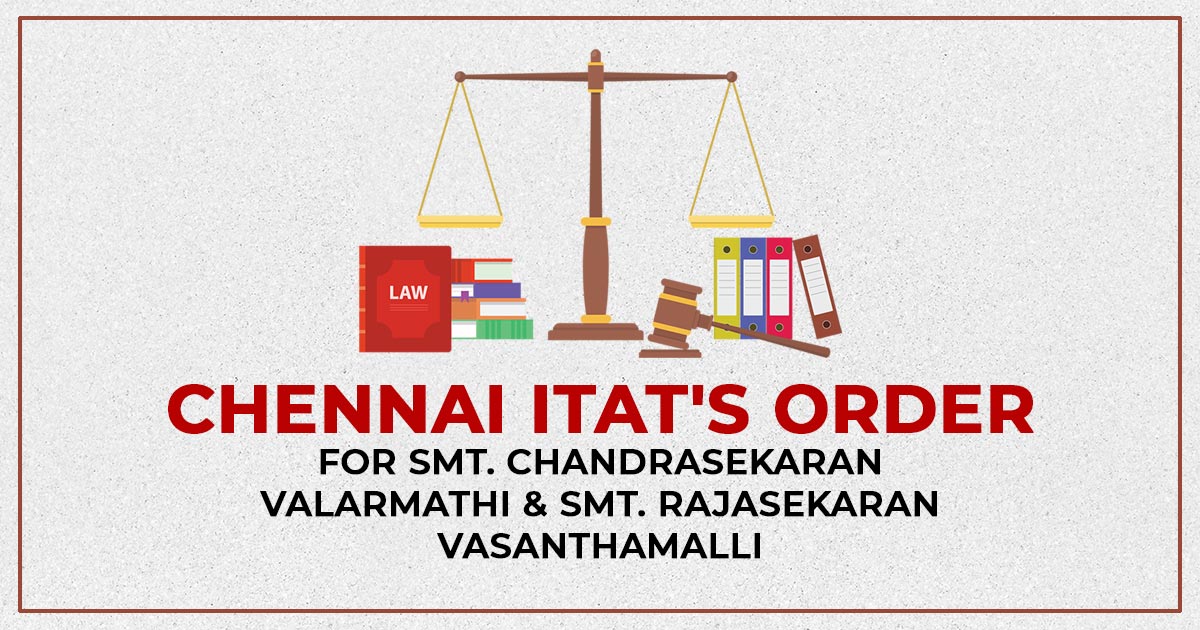
The Income Tax Appellate Tribunal (ITAT), Chennai Bench ruled that Section 56(2)(vii)(b)(ii) Income Tax Act, 1961 shall not be applicable if the property was purchased for business use of a partnership firm.
The taxpayer Chandrasekaran Valarmathi is a partner in a firm M/s Chandran Steels, including three other partners of the firm, purchased a specific building for Rs.95.72 Lacs. This amount was remarked to be debited in the firm. The building loan of Rs.70 Lacs was received against that.
Relevance:- Chennai ITAT Removes Addition Related to Inexplicable Investment in the Difference of Stock Valuation
During the assessment proceedings, the Assessing Officer (AO) observed that the property, acquired at a value of Rs. 85 Lakhs, deviated from the guideline value of Rs. 155.77 Lacs.
Consequently, the AO invoked the provisions of Sec.56(2)(vii)(b)(ii), suggesting that the differential amount should be treated as ‘income from other sources’ for the assessee, with the specific share being one-fourth.
Displeased with this decision, the assessee appealed to the CIT(A), but the appeal was dismissed. Subsequently, the assessee pursued a second appeal before the tribunal.
In defence, K.G. Raghunath, the counsel for the assessee, contended that according to Section 14 of the Indian Partnership Act, any property, rights, or interest acquired with the firm’s funds is deemed to be owned by the firm. Since the entire purchase amount was funded by the firm, Raghunath argued that the property rightfully belonged to the firm.
Additionally, he pointed out that the firm claimed depreciation on the property, indicating its business use and negating the applicability of Sec.56(2)(vii)(b)(ii).
Important:- Proceeds from Holiday Home Taxable under Other Sources: ITAT
On the contrary, P. Sajit Kumar, representing the revenue, asserted that the property deed did not explicitly state that the purchase was made in the capacity of the firm’s partners, and the property acquisition was not attributed to the firm.
He emphasized that the loan for the property was sanctioned in the individual names of the partners, implying that the property was acquired in their capacities.
The tribunal noted that the property had been acquired through joint ownership involving four individuals, all of whom were partners in the firm M/s Chandran Steels. Furthermore, the firm was granted depreciation, and it was exclusively utilizing the property for its business needs, with the repayment of the loan instalment handled by the firm.
Read Also:- Chennai ITAT Removes Addition Related to Inexplicable Investment in the Difference of Stock Valuation
In light of these circumstances, the tribunal concluded that the property was effectively acquired by the firm itself and not by the individual partners. Consequently, the tribunal determined that the provisions of Sec.56(2)(vii)(b)(ii) could not be invoked, as these provisions did not apply to partnership firms during the relevant period.
After a thorough examination of the facts and records, the two-member bench comprising Manoj Kumar Aggarwal (Accountant Member) and Mahavir Singh (Vice President) held that Section 56(2)(vii)(b)(ii) of the Income Tax Act, 1961, would not be applicable when the property is purchased for the business use of a partnership firm.
| Case Title | Smt. Rajasekaran Vasanthamalli V/S Non-Corporate Ward-I(4),Coimbatore |
| Citation | ITA No.652/Chny/2022 |
| Date | 29.11.2023 |
| Counsel For Appellant | Shri K.G. Raghunath (Advocate)-Ld. AR |
| Counsel For Respondent | Shri P.Sajit Kumar (JCIT) –Ld. Sr. DR |
| Chennai ITAT | Read Order |









